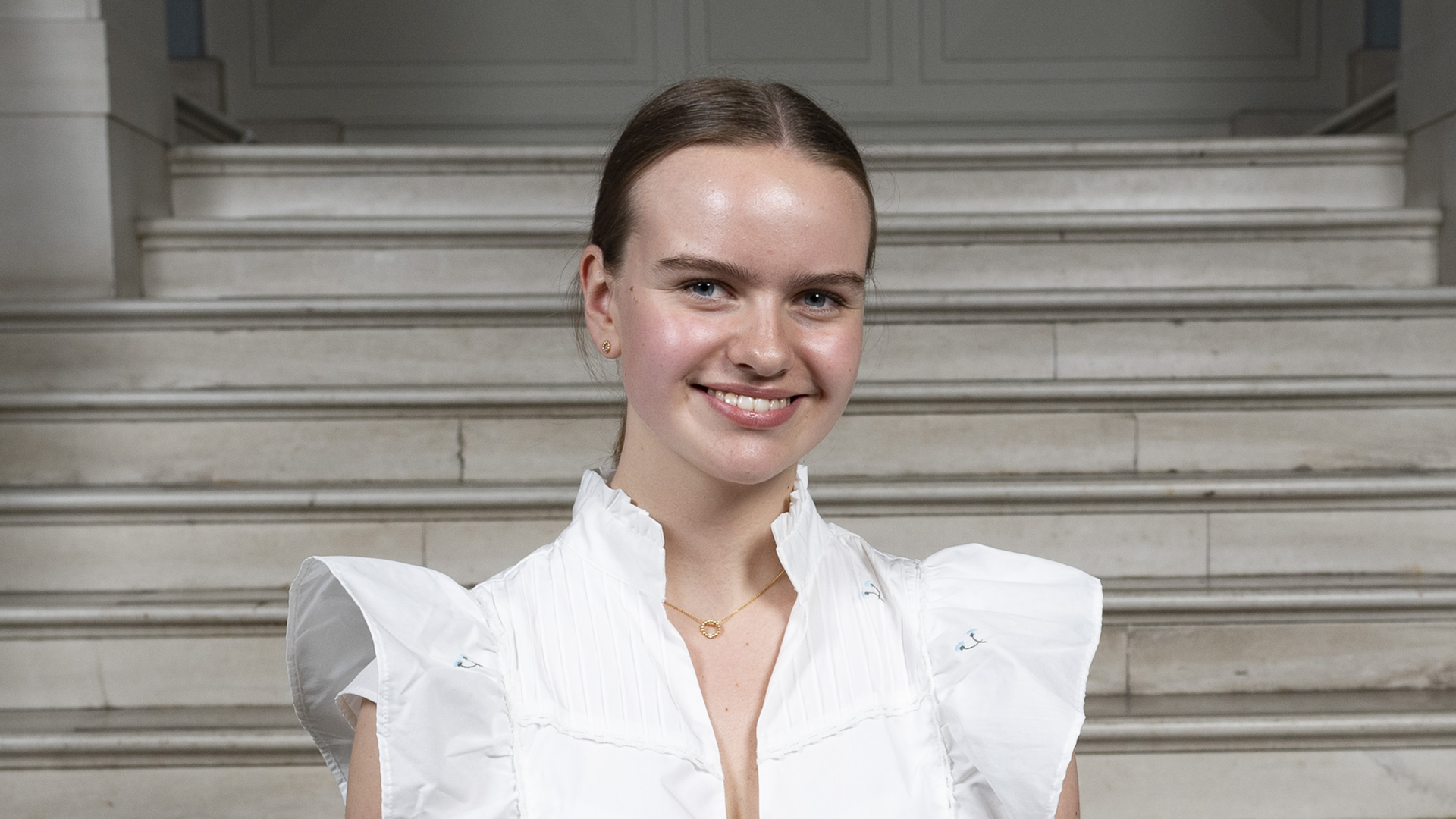
Longyearbyen School
Winner of the Holberg Prize School Project
Live Strømshoved from Longyearbyen School came second in the 2022 Holberg Prize School project with the research project «The snow crab understood from the perspective of International Law».
Live Strømshoved from Longyearbyen School came second in the 2022 Holberg Prize School project with the research project «The snow crab understood from the perspective of International Law».
Despite being most known as an Arctic delicacy, the snow crab has also become a symbol of problematic issues relating to key principles in International Law. This is a project about the Norwegian sovereignty on Svalbard and how the snow crab has become a major political issue in the High North. Strømshoved focuses specifically on the dispute between Norway and the EU regarding the access to snow crab fishing around Svalbard. The problem statement, which the research is based on, is as follows: Can the EU challenge Norwegian sovereignty over Svalbard by claiming the rights to snow crab fishing?
Strømshoved approaches this question by taking the 2019 appeal of the Norwegian Supreme Court into consideration and placing it within an international law perspective. Terms that are central to the project include “international law” and “sovereignty”. One qualitative method which the author draws on, is a document analysis of the publicly available texts regarding the Supreme Court appeal, the so-called Svalbard Treaty, and the United Nations Convention on Law of the Sea. These documents have been examined, interpreted, and reviewed. Strømshoved has further supported this method by conducting an in-depth interview with a legal scholar that has been involved in the case.
The author concludes that the EU could to some extent challenge the Norwegian sovereignty on Svalbard by claiming the right to snow crab fishing. This is, for instance, apparent in the wording of the Svalbard Treaty, where one could make the claim that the Norwegian view of the treaty is unfounded. However, the author also finds that the Norwegian argument for sovereignty is to some extent supported by the United Nations Convention on Law of the Sea. Strømshoved ends her conclusion with the notion that a clarification of the international law is essential if there is ever to come an agreement in the case.
The author is aware of several of the limitations within the study. Strømshoved points out that her interview only shows the Norwegian side of the case and lacks a perspective from an EU representative. Strømshoved minimizes this limitation to some extent with her documentation analysis consisting of information representative of both parties.
The Holberg Prize School Project
20 upper secondary schools and more than 800 students from all over Norway participate in the Holberg Prize School Project each year. The students are assisted by scholars, and the projects are integrated into the students' regular curriculum. Three research projects are awarded prizes of NOK 30,000, NOK 20,000 and NOK 10,000 respectively.
The finalists are announced in mid May, and the Holberg Prize School Project Award Ceremony is held during the Holberg Week in early June each year.
The jury
All submitted projects are evaluated by the School Project's jury. In 2022 the members of the jury have been:
Stine Helena Bang Svendsen, Associate Professor in pedagogy at the Department of Teacher Education, Norwegian University of Science and Technology (Chair of the jury)
Sveinung Arnesen, Research Professor at NORCE, Associate Professor at the Department of Administration and Organization Theory, University of Bergen
Åsne Berge, Head of Section for specialization in general studies at Vest-Telemark Upper Secondary School
Jørn Ljunggren, Researcher at the Centre for Welfare and Labour Research, OsloMet
Hallvard Kjelen, Associate Professor, Faculty of Education and Arts, Nord University